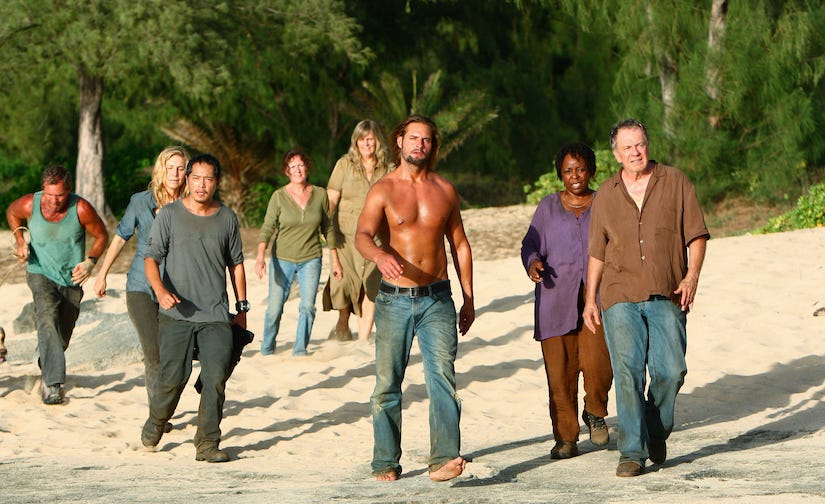Ten years of Lost: Looking back at one of television’s greatest shows and what connects it to our today
by Manik SharmaThroughout the six seasons of ABC network’s ground-breaking series Lost, one of the most popular characters John Locke (Terry O’Quinn) repeatedly tells people around him, “Don’t tell me what I can’t do”.
For six years straight, no one could tell what Lost ought to, or would, do. So much so that Lost’s imagination perhaps exceeded anyone’s grasp, something which many believe also became the show’s undoing.
The show melded mystery, science fiction and suspense into a yarn so thick yet so elusive that the show’s name would later become a bit of a joke about how the audience felt while watching it. Ten years since its divisive yet typically beguiling finale, Lost inspires discussions and theories about what really happened. Though the idea of binge-watching was really established with the surge of streaming platforms years later, it was really first teased by Lost, a show so fascinating, so sprawling in its ambition, it left you in awe. It remains perhaps the most binge-worthy piece of entertainment created to date, a TV phenomenon that is yet to be surpassed for the intrigue and possibilities it spawned.

Even though we’re talking about Lost on the 10th anniversary of its finale, the show probably pulled off one of the greatest pilots ever made.
In only one episode it managed to establish half a dozen protagonists and a central mystery: a plane had crash landed on a seemingly unknown island, but incredibly a significant number of passengers had survived. As it would then proceed to tell, the mystery about Oceanic flight 815 only grew deeper, murkier, weirder and more difficult to predict. Most sci-fi or mystery shows usually work towards solving a singular mystery arrived at by several branching revelations.
Lost invented the art of spawning countless arcs, some supernatural, some inexplicable, some familiar. Something the show was excellent at and is often unrecognised for, is its attention to character. From the righteous Jack (Matthew Fox), to the sad, yet likeable, Hugo (Jorge Garcia) to the warring familial tensions between Jin and Sun, the series wrote its characters with intimate detail and care. Never before had an international cast (which also included the terrific Naveen Andrews), on the scale of the series, been put together. Despite the global reach of OTT platforms, none of them have managed to recreate an ensemble like Lost.
Lost has since been followed by mammoth TV events like Game of Thrones and Breaking Bad, and binge-worthy milestones like Narcos, Stranger Things and more recently, Money Heist. But nothing has come close to the original crystal ball, the show that could neither be predicted, nor missed. It confused you, befuddled you, dropped your jaw with ease and you couldn’t help coming back for more. But it wasn’t just the complex hidden secrets, mystery men or unknown quantities (like the black smoke) that made the series special. Lost was always deep, riddled with questions about humanity, race, faith and survival.
Both Locke and Jack, for example, represented warring approaches to life. One believed in faith, the other in science, a trope explored in the eponymously titled second season episode ‘Man of Science, Man of Faith’. Then there were episodes that subtly humanised the preposterous. One man’s accident could be another man’s gift, as the episode ‘Walkabout’ from the first season showed us so beautifully. Love, pain, motherhood, identity, addiction, friendship, the show managed to intricately weave in elements that made its characters human, despite the eerie and alien world they clearly inhabited. It was necessary for all the absurdity to be anchored in something as wholesome and fallible as being human. And so there was greed, jealousy and betrayal as well.
Lost is a bit of an epic, a slow, methodical untangling of what consistently feels like a conspiracy, a magic trick. But rarely does a sense of magic last beyond the last clap. Only something that can dissolve its audience, make them part of an unending trick, claims the right to being something truly special.
Theories about the show continue to be written and analysed to this day. Were they dead? Is the island Purgatory? What was the Dharma initiative after all? And just who is Locke, the most mesmerising character of the ensemble? Lost’s unique capacity to live on in drawing room conversations as much as it did on television is a hole that is yet to be filled. Sophisticated shows like Westworld have tried, but unquestionably failed at replicating both suspense and obsessive theorising at a scale that Lost inspired, even in a pre-streaming world.
Lost wasn’t, of course, always great. For a while in the middle it became laboured, its flashbacks unnecessary, and the narrative u-turns too many to keep up with. After the creators Damon Lindelof and J. J. Abrams refused to stretch the show, it came back leaner and better. It’s a bit surreal to recall the series at a time when our understanding and interpretation of time, faith and space are being either challenged or remodelled. We are stuck trying to consistently interpret our reality, with no clue or foresight of what is to come. It may sound preposterous, but Lost pits a motley crew against circumstances not too dissimilar. Neither their present nor the future they encounter makes sense. It’s a journey against the unknown. And no series made figuring the unknown more entertaining than Lost.